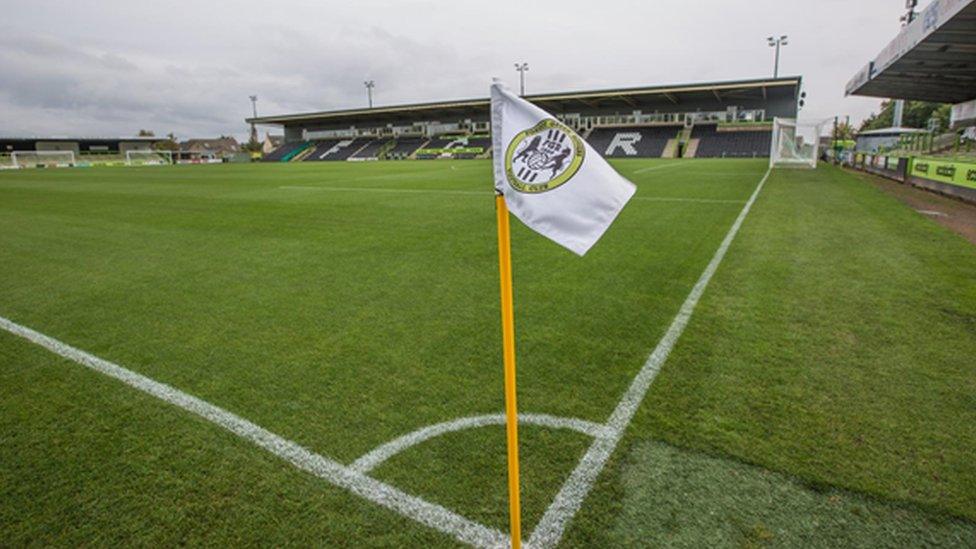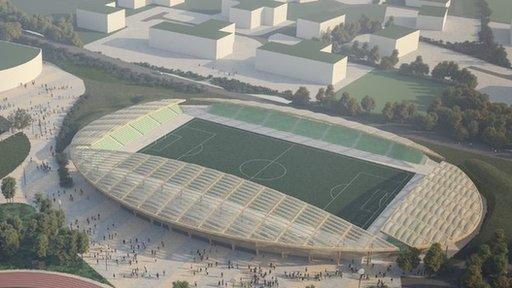Forest Green Rovers stadium plan recommended for approval
- Published

The new stadium will be made entirely from wood
Outline planning permission for a new 5,000-seater all-wooden football stadium has been recommended for approval.
League Two club Forest Green Rovers' new ground would be built on land near junction 13 of the M5 near Stroud.
Plans also include a car park for 1,700 vehicles, two full size grass practice pitches and a goal practice area.
They are due to be discussed at a Stroud District Council planning committee next week.
Club chairman Dale Vince said detailed designs for the stadium would be completed in about 12 months and he hoped it would be open after "three or maybe four" football seasons.
"It's going to be made all of wood. It'll be the first stadium in the world to be built that way.
"I think that'll make it slightly slower to build than a conventional steel and concrete stadium."
The view from the centre spot of the proposed Forest Green Rovers stadium
A winning design for the proposed stadium, from architect Zaha Hadid, was announced in 2016.
Plans submitted previously, which also included a green technology business park and offices, were later removed from the proposal.
This was due to the applicant being told they were likely to be refused due to excessive noise pollution at William Morris House, which cares for young people with learning difficulties.
The applicant's solution included the need for the windows at the college to be closed when a match was being played, which was deemed unacceptable by planning officers.
Under the revised plans, the location of the stadium has been moved to the north of the A419, further away from William Morris House.
Forest Green Rovers was named the "greenest football club in the world" last year.
The club's current ground in Nailsworth is powered by renewable energy, recycles rain water and serves vegan food to players, staff and fans.
- Published28 September 2018

- Published29 December 2017

- Attribution
- Published15 May 2017

- Published3 November 2016

- Published4 July 2016
